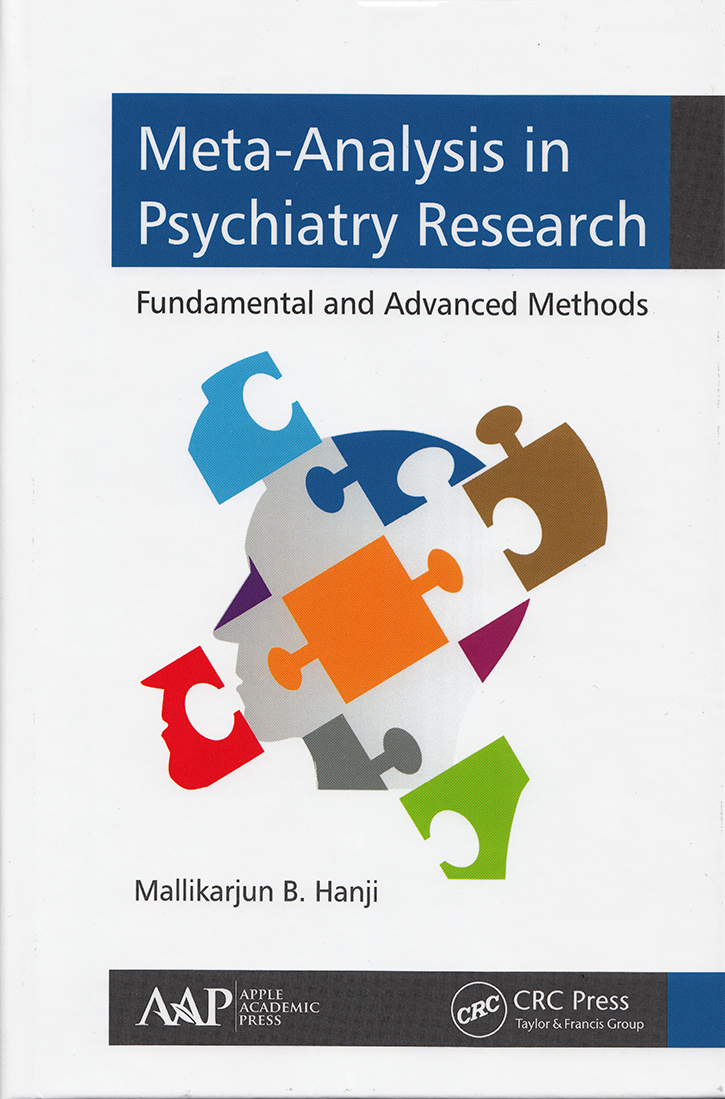

2025 Stata Conference • Nashville, TN • 31 July–01 August
Meta-Analysis in Psychiatry Research: Fundamental and Advanced Methods |
||||||||||||||||||||||||||||||||||||
 Click to enlarge See the back cover |

As an Amazon Associate, StataCorp earns a small referral credit from
qualifying purchases made from affiliate links on our site.
eBook not available for this title
eBook not available for this title |
|
||||||||||||||||||||||||||||||||||
Comment from the Stata technical groupThough originally written for researchers in Psychiatry, Meta-Analysis in Psychiatry Research, by M. B. Hanji, is a valuable resource for anybody interested in meta analysis. The book starts by introducing the scope, history, and characteristics of these techniques. Then, there are several chapters dedicated to discussing every stage of the meta-analysis research, from forming a relevant question, criteria, and strategies to find and select studies, to applying different techniques, interpreting results, and even reporting the findings. After describing several techniques for pooling different kinds of statistics such as means, odds ratios, or risk ratios, and for visualizing data and results via graphs such as funnel and forest plots, the book shows how to implement these techniques using several community-contributed commands in Stata. The appendix shows a meta-analysis on the prevalence of schizophrenia in India, discussing every step of the study and showing graphs and results. Most of the book is organized in small sub-sections in which the reader can easily find the information for each stage of the research. |
||||||||||||||||||||||||||||||||||||
Table of contentsView table of contents >> List of Abbreviations
Preface
Acknowledgments
1. Introduction
2. Protocol Writing for Meta-Analysis Study
3. Formulation of Research Problem
4. Location and Selection of Studies
5. Quality Assessment of Selected Studies
6. Effect Sizes of Primary Studies
7. Preparation of Meta-Analysis Master Sheet
8. Meta-Analysis Plots
9. Meta-Analysis of Two Studies
10. Methods for Pooling Estimates: Fixed Effects Model
11. Method for Pooling Estimates: Random Effects Model
12. Individual Patient Data Meta-Analysis
13. Meta-Analysis of Observational Studies
14. Additional Meta-Analysis Techniques
15. Reporting Meta-Analysis Results
16. Implications of Results of Meta-Analysis
17. Meta-Analysis Software
18. Running Meta-Analysis Using Stata
Appendix I: Numerical Demonstration: Meta-Analytical
Approach to Estimate Prevalence of Schizophrenia in India
Index
|
||||||||||||||||||||||||||||||||||||
Learn
Free webinars
NetCourses
Classroom and web training
Organizational training
Video tutorials
Third-party courses
Web resources
Teaching with Stata
© Copyright 1996–2025 StataCorp LLC. All rights reserved.
×
We use cookies to ensure that we give you the best experience on our website—to enhance site navigation, to analyze usage, and to assist in our marketing efforts. By continuing to use our site, you consent to the storing of cookies on your device and agree to delivery of content, including web fonts and JavaScript, from third party web services.
Cookie Settings
Last updated: 16 November 2022
StataCorp LLC (StataCorp) strives to provide our users with exceptional products and services. To do so, we must collect personal information from you. This information is necessary to conduct business with our existing and potential customers. We collect and use this information only where we may legally do so. This policy explains what personal information we collect, how we use it, and what rights you have to that information.
These cookies are essential for our website to function and do not store any personally identifiable information. These cookies cannot be disabled.
This website uses cookies to provide you with a better user experience. A cookie is a small piece of data our website stores on a site visitor's hard drive and accesses each time you visit so we can improve your access to our site, better understand how you use our site, and serve you content that may be of interest to you. For instance, we store a cookie when you log in to our shopping cart so that we can maintain your shopping cart should you not complete checkout. These cookies do not directly store your personal information, but they do support the ability to uniquely identify your internet browser and device.
Please note: Clearing your browser cookies at any time will undo preferences saved here. The option selected here will apply only to the device you are currently using.